TMJ Physiotherapy London
Services
Jaw disorders are a common musculoskeletal problem, second only to chronic lower back pain.
It’s caused by dysfunction of the Temporomandibular Joint, which is located in front of each ear and connects your lower jaw to your skull.
If you are experiencing pain or stiffness in your jaw, you might think of seeing your dentist. But your first line of defence should be TMJ Physiotherapy. Physio can help reduce pain and improve function, with both short- and long-term results.
Book an Initial TMJ Physiotherapy Assessment to speak to one of our specialists, and we’ll get to the bottom of what’s wrong.
What can TMJ Physio help with?
- Jaw pain and tenderness
- Limited range of motion
- Clicking, popping or grating sounds
- Headaches or migraines
- Ear pain or earache
- Tinnitus
- Facial pain or fatigue
- Changes in bite alignment or a bite that feels 'off'
- Neck and shoulder pain
- Bruxism (grinding, gnashing or clenching of the teeth)
- Anxiety and depression
- Dizziness and vision problems
- Recovery from dental work
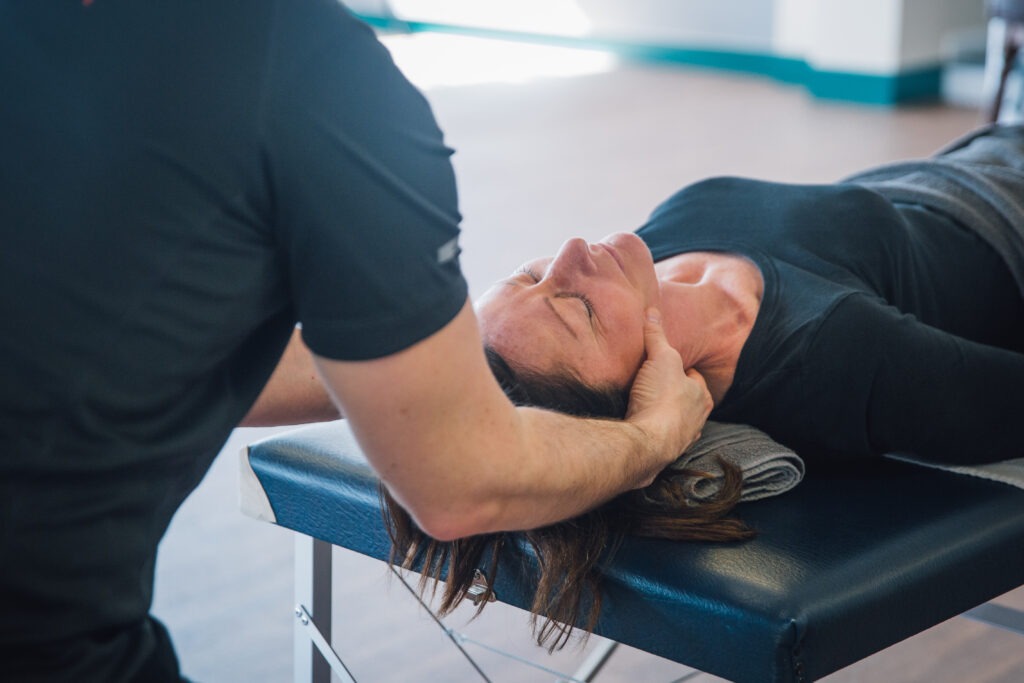
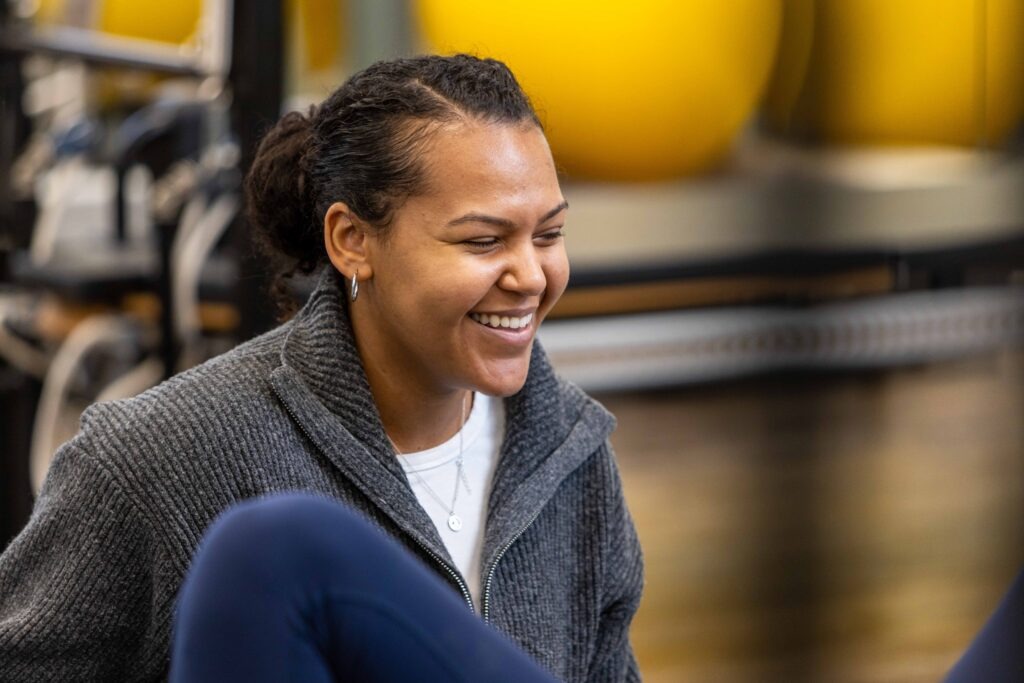
What is your TMJ?
Your Temporomandibular Joints are the most used joints in the human body, allowing you to perform essential everyday movements such as chewing, talking, kissing, and even breathing.
When functioning properly, the left and right TMJ should work together as a team. They are the only joints that work in coordination with each other, as a single unit. Think about it – you don’t have one jaw opening without the other.
Because the TMJs use both synchronised and 3D movements, they are distinguished as the most complex joints in the human body.
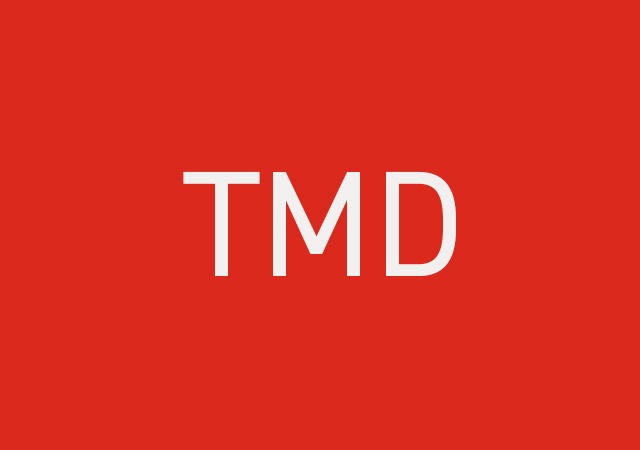
Temporomandibular Joint Disorder (TMD)
When your TMJs aren’t properly cared for, you may be at higher risk of developing pain or dysfunction. This is often abbreviated as TMD which stands for Temporomandibular Joint Disorder or Dysfunction.
TMD is a complex, multi-systemic condition involving far more than just the jaws and teeth. It involves the circulatory, digestive, endocrine, exocrine, immune, nervous, reproductive, respiratory, and the musculoskeletal system.
33%
of the general population will experience TMJ pain at some point
20 to 40
TMD is most prevalent in women aged
15%
of the population will develop chronic TMD
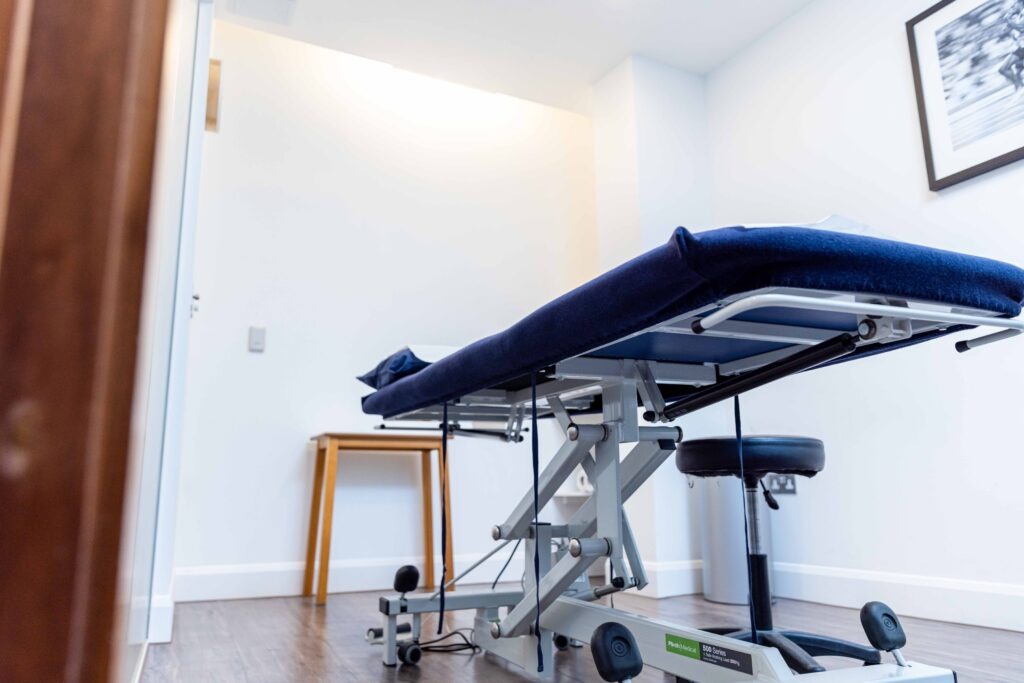
Assessment & diagnosis
During an Initial TMJ Physiotherapy Assessment, you’ll sit down with one of our Specialist TMJ Physiotherapists who will ask you about the problem you’re experiencing. They’ll need to know whether you have suffered any trauma to the head, have undergone any dental work recently, are under stress, or have also noticed any neck or shoulder issues.
You will also be asked about your medical history as certain medications, such as some antidepressants, come with side effects that can cause TMD.
As part of your assessment, your physiotherapist will observe you performing certain neck and jaw movements.
Once they have established the cause of your TMJ problem, the second half of your appointment will be spent providing treatment to help reduce your symptoms.
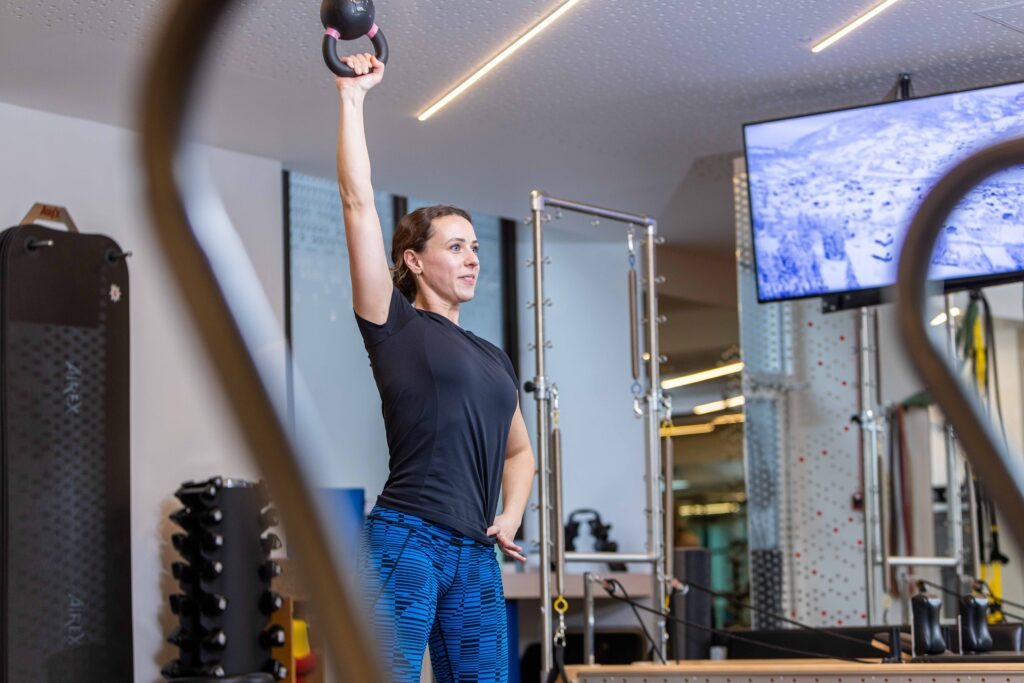
Individualised treatment & advice
Your physio will create a treatment plan that is tailored to you, and will advise you on the number of sessions you need.
Treatment at our TMJ Physio clinics could include:
- Targeted jaw strengthening and stretching exercises
- Postural and upper body exercises
- General fitness
- Manual therapy including joint mobilisation and soft tissue release
- Dry needling which involves the insertion of a thin, solid needle (similar to those used in acupuncture) through the skin and into the underlying tissues. This technique is designed to stimulate physiological changes, targeting muscle tension, trigger points, and pain pathways to promote healing and restore function
How To Book
We are on WhatsApp! Drop our Front of House team a message and we’ll help with any queries.
Give us a call on 020 7036 0286 to speak to one of our physiotherapists and find out more.
Our TMJ Physiotherapy Team
Performance Physio, Pilates Physio, Rehab Physio, TMJ Specialist, Vestibular Physiotherapist
Consultant Physiotherapist, Pilates Physio, Running Specialist, TMJ Specialist, Vestibular Physiotherapist
Clinic Director, Consultant Physiotherapist, Pilates Physio, TMJ Specialist, Vestibular Physiotherapist, Women's Health Physio
Praise for our TMJ Physio
This service is available at the following clinics:
Frequently Asked Questions
What is TMJ?
TMJ stands for Temporomandibular Joint, which are your jaw joints. Just like your knees and elbows are joints, so is your jaw. The only difference is that your left and right knee don’t work together automatically, but your jaw does.
Where can I get TMJ Physio in London?
At Six Physio we have TMJ specialists at our Finchley Rd, Kensington, Mansion House, and Monument clinics.
How much is TMJ Physio?
The cost of an initial appointment with a Physiotherapy TMJ specialist is £155. Follow up appointments are £107.
Find out more about our pricing here.













